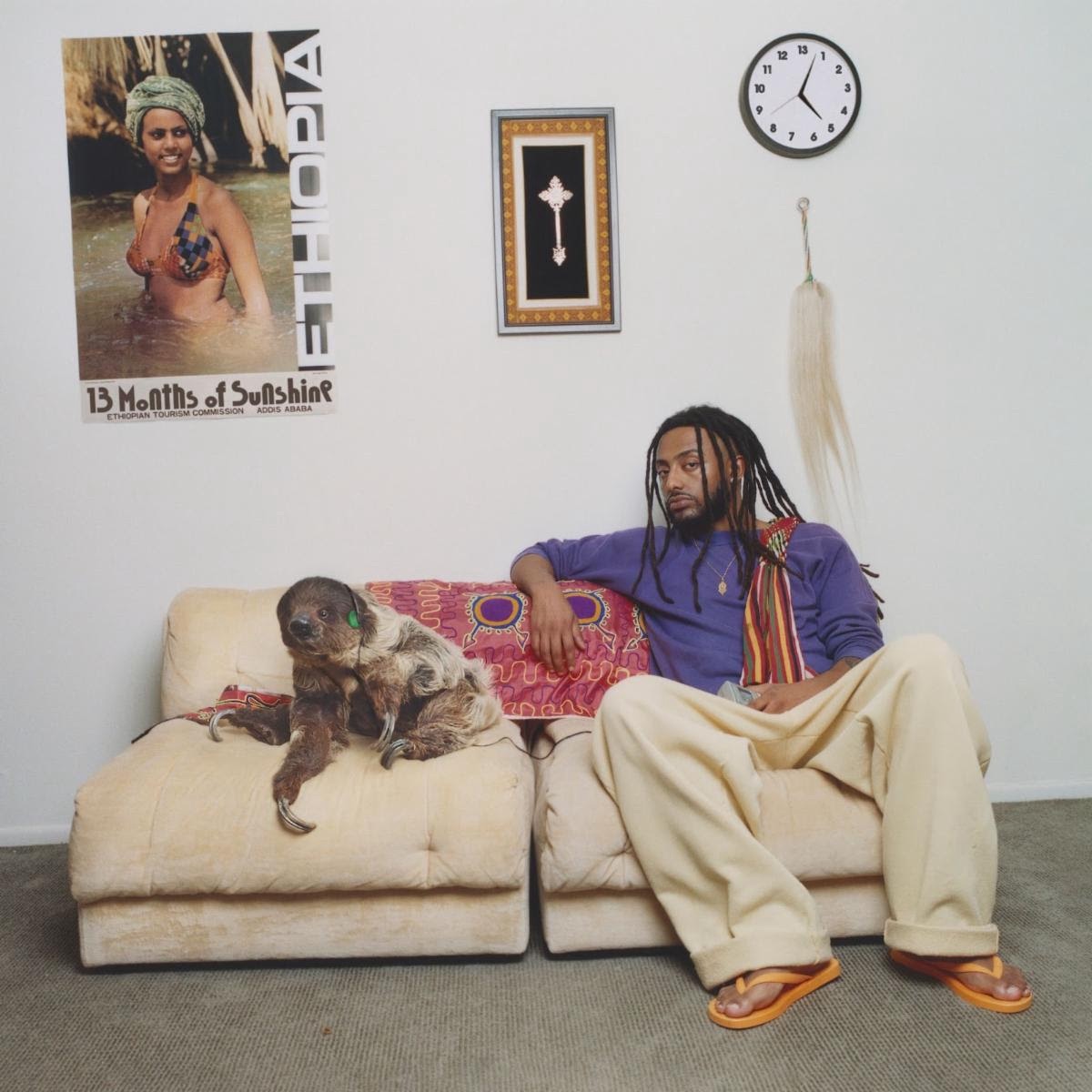Aminé
13 Months of Sunshine
10K
Aminé’s music has always been primed for sunny days. The Portland-reared rapper stormed onto the scene in 2017 with his debut album Good for You, a bouncy pop-rap project best enjoyed while sitting poolside. 2020’s Limbo embraced the cooler side of the season, thriving in the shade with tracks like “Roots” and “Easy,” whose R&B undertones gave the album the feeling of a balmy breeze. His last two releases—the quasi-EP TwoPointFive and the Kaytranada collaboration Kaytraminé—both turned toward EDM-inspired production to infuse sunshine into the music, compelling you to sweat it out on the dancefloor.
If the “Spring Aminé Fall Winter” merch tagline for 13 Months of Sunshine didn’t give it away, the rapper’s latest offering keeps the summer vibes coming, blending house, hip-hop, and the East African sun to give listeners a deeply personal look at the journeyman rapper. Paying homage to Aminé’s Eritrean-Ethiopian heritage, the album derives its name from the first Ethiopian Minister of Tourism Lij Hapte Selassie Tafesse’s promotional phrasing used to describe the East African nation. Ethiopia is one of only four countries in the world that hasn’t adopted the Gregorian calendar, opting instead to continue the usage of the Ethiopian (Ge’ez) calendar central to the religious heritage of the country. The slogan derives from a particularly unique aspect of it—its thirteenth month, Pagume, which consists of five to six days at the end of each year to align the calendar with the solar cycle.
The Leon Thomas–assisted “New Flower!” opens 13 Months by analogizing Aminé’s pre-“Caroline” breakout with the garden his Grandpa Aminé (the rapper’s namesake) meticulously kept. Backed by a bouncing bass line and a smattering of organ fills that shimmer like rays of light through cracked blinds, Aminé details his experience doing sandwich runs as a Def Jam intern while trying to make his dream come true. An interlude provides a touching recollection by the rapper’s father, who gardened every day after school at the behest of his father. A garden is only as strong as the care it's given, and the same is true for the career of a young rapper trying to break into the limelight.
Buoyed by a throughline of dance-forward production, 13 Months flows between flippant sex- and drug-fueled summer fun and introspection on Aminé’s long-standing battle with depression. “Feels So Good” laps up dopamine like waves on the beach, detailing how these indulgences, well, feel so good. But an outro again featuring Aminé’s father warning that drugs can drive you off a cliff flips the perspective heading into “Sage Time,” where the emcee admits that he’s “not built for this shit” and croons about his struggles between dance breaks. The disparate nature of the lyrics and production is cause for whiplash—two-stepping with a drink in hand while simultaneously wondering if Aminé is doing OK. “I Think It’s You” furthers the inward look, seeing Aminé smoke a spliff while trying to get at the root of his sorrow over a lush dancehall rhythm.
A pair of exploratory relationship pieces (“Cool About It” and the Waxahatchee-featuring “History”) get you in your feels before lead singles “Vacay” and “Familiar” pick the beat back up and infuse it with sunscreen and an aperol spritz. The back half of the album takes a markedly upbeat turn: “Doing the Best I Can” and “Be Easier on Yourself” fill the listener with affirmations before Aminé smokes up in the Ethiopian sun with his dad and sister on “13MOS,” the ocean water lapping at their toes. Closing out the day at the beach, Aminé enlists the talents of Toro y Moi and 454 on “Images” to help take polaroids of the moment to keep the memories alive.
13 Months of Sunshine ends with Aminé closing out the interview with his father that weaves throughout most of the album. The rapper has never been shy about showing his family love in his music, as evidenced by a Tupac-inspired ode to his mother on Limbo, and weaving his father’s words throughout 13 Months of Sunshine continues this touching commitment. The series of I-love-yous shared between the rapper and his dad hit at the true heart of this project—homage to Aminé’s heritage and his love of his family and his cultural roots. It’s a deeply personal and intimate moment, one I’m incredibly grateful Aminé allows us to bear witness to.







